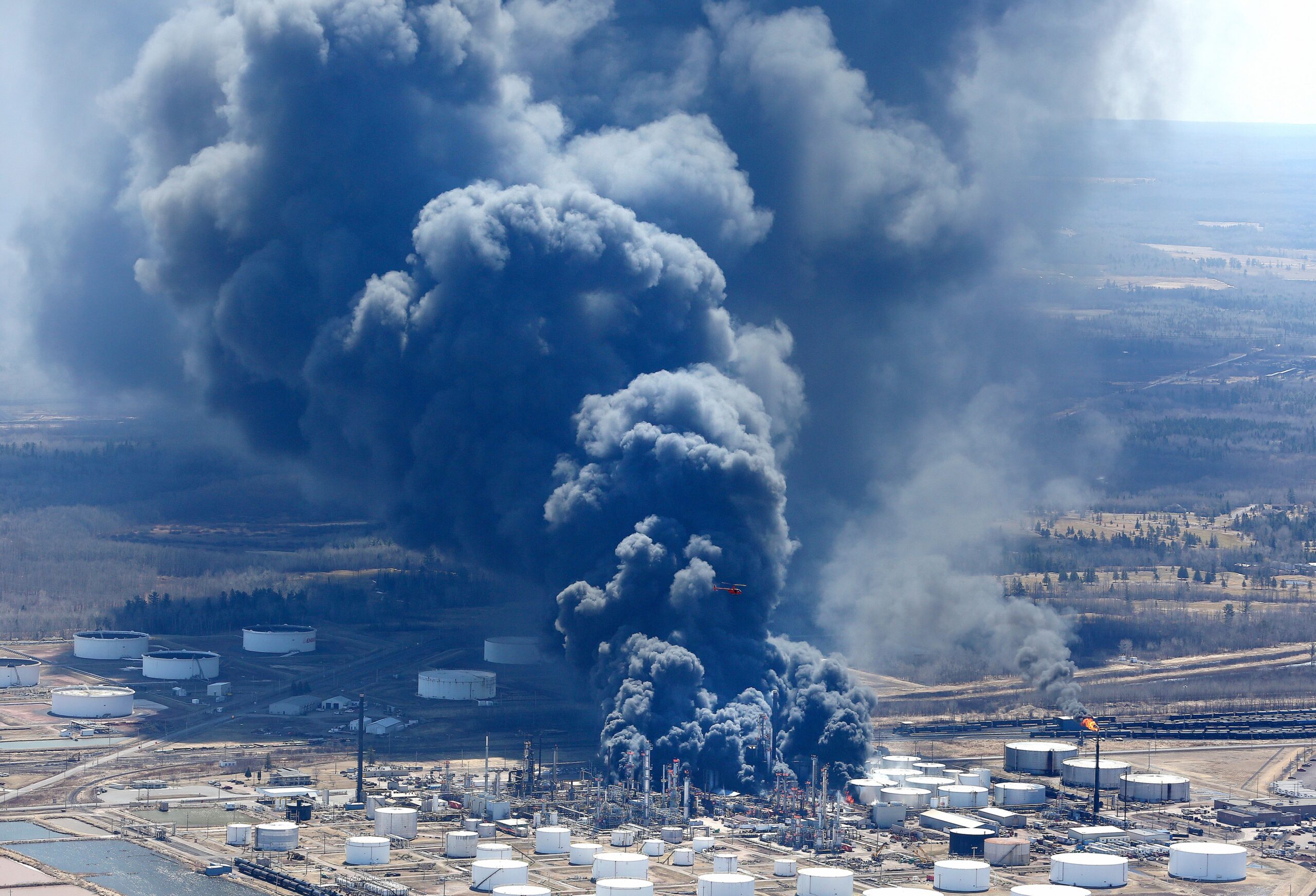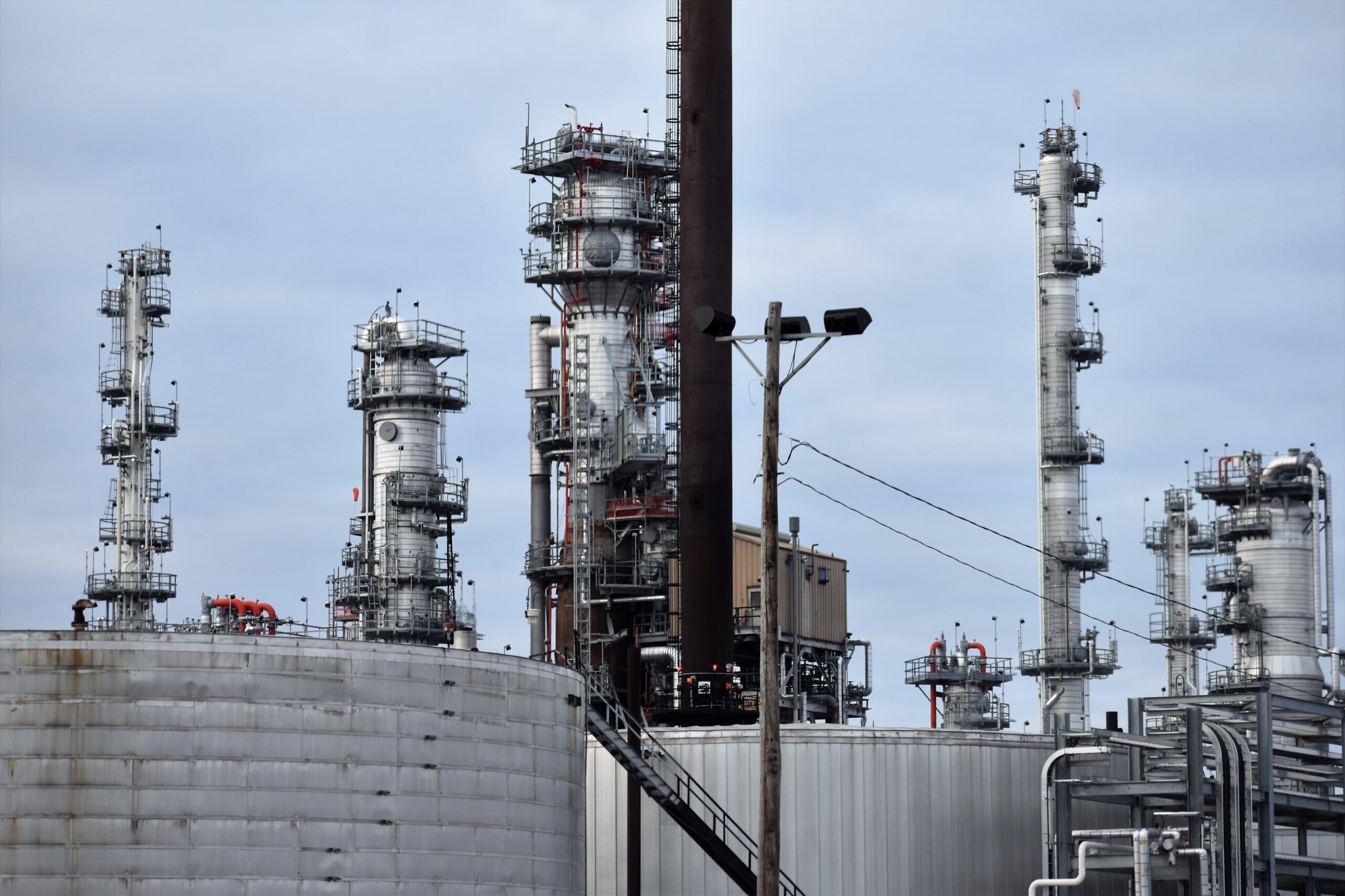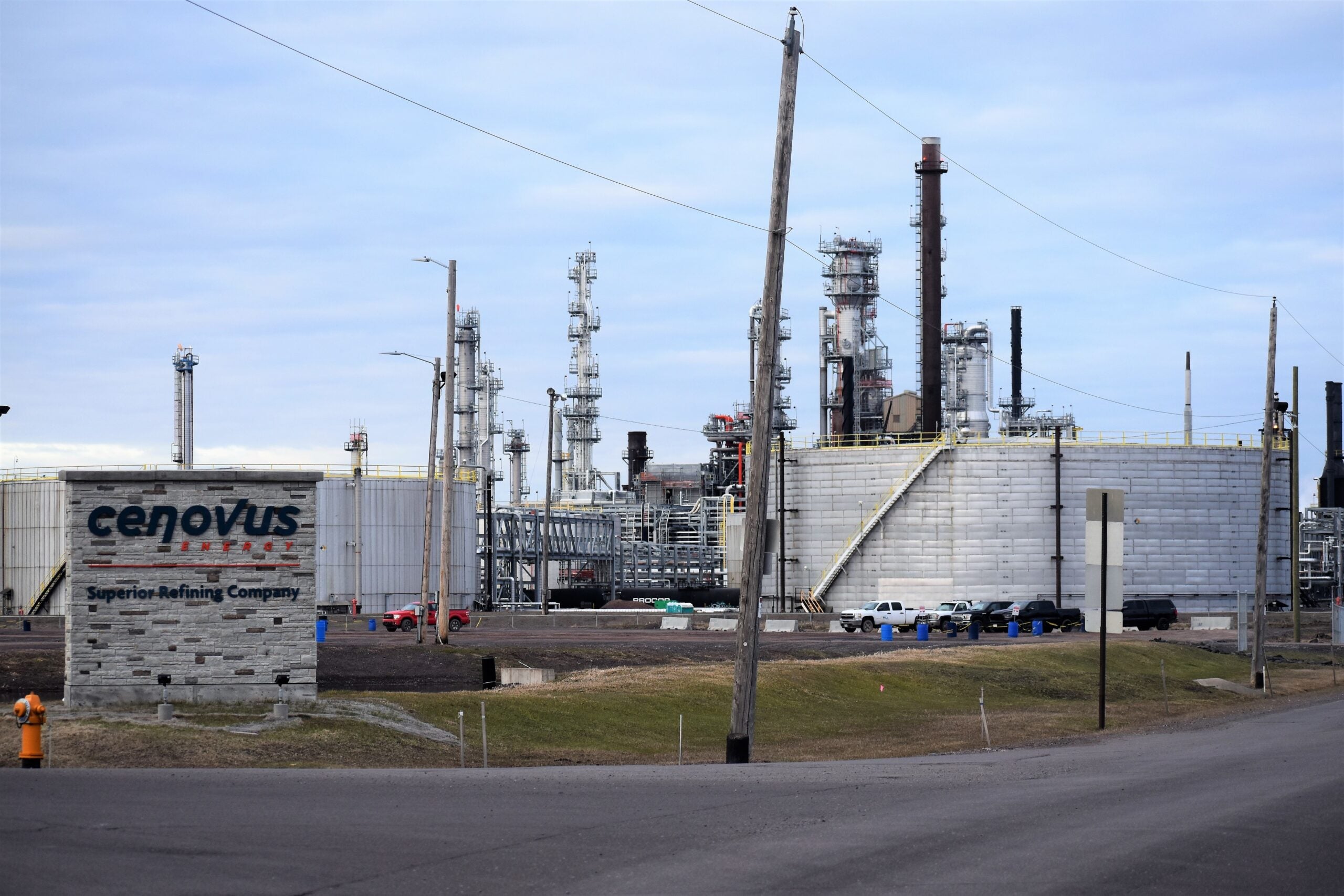After more than four years, a federal agency found a Superior refinery’s lack of safeguards during a maintenance shutdown led to a 2018 explosion that injured three dozen workers and caused thousands of residents to temporarily evacuate.
The U.S. Chemical Safety Board, or CSB, released a final report last week on its investigation into the fires and explosion at the refinery then owned by Calgary-based Husky Energy in April 2018. At the time of the incident, the facility was shutting down a unit used to make gasoline while conducting maintenance.
“We found that during the maintenance events that the Superior refinery was having, there were some key safeguards that were missing that prevented the unit from shutting down safely,” Melike Yersiz, the board’s lead investigator, told Wisconsin Public Radio.
News with a little more humanity
WPR’s “Wisconsin Today” newsletter keeps you connected to the state you love without feeling overwhelmed. No paywall. No agenda. No corporate filter.
Investigators found the refinery failed to implement safeguards like creating a steam barrier in part of the facility’s fluid catalytic cracking unit, or FCC unit, that’s used to make gasoline. Yersiz said setting up a steam barrier is the most important safeguard to prevent air from mixing with flammable hydrocarbons in the rest of the unit. Plant operators also failed to purge air from a piece of equipment within that system.
The report also cited a severely eroded slide valve that allowed air to flow into the rest of the unit. WPR previously reported federal labor regulators discovered the refinery knew that valve could leak and had documented erosion during maintenance in 2008 and 2013.
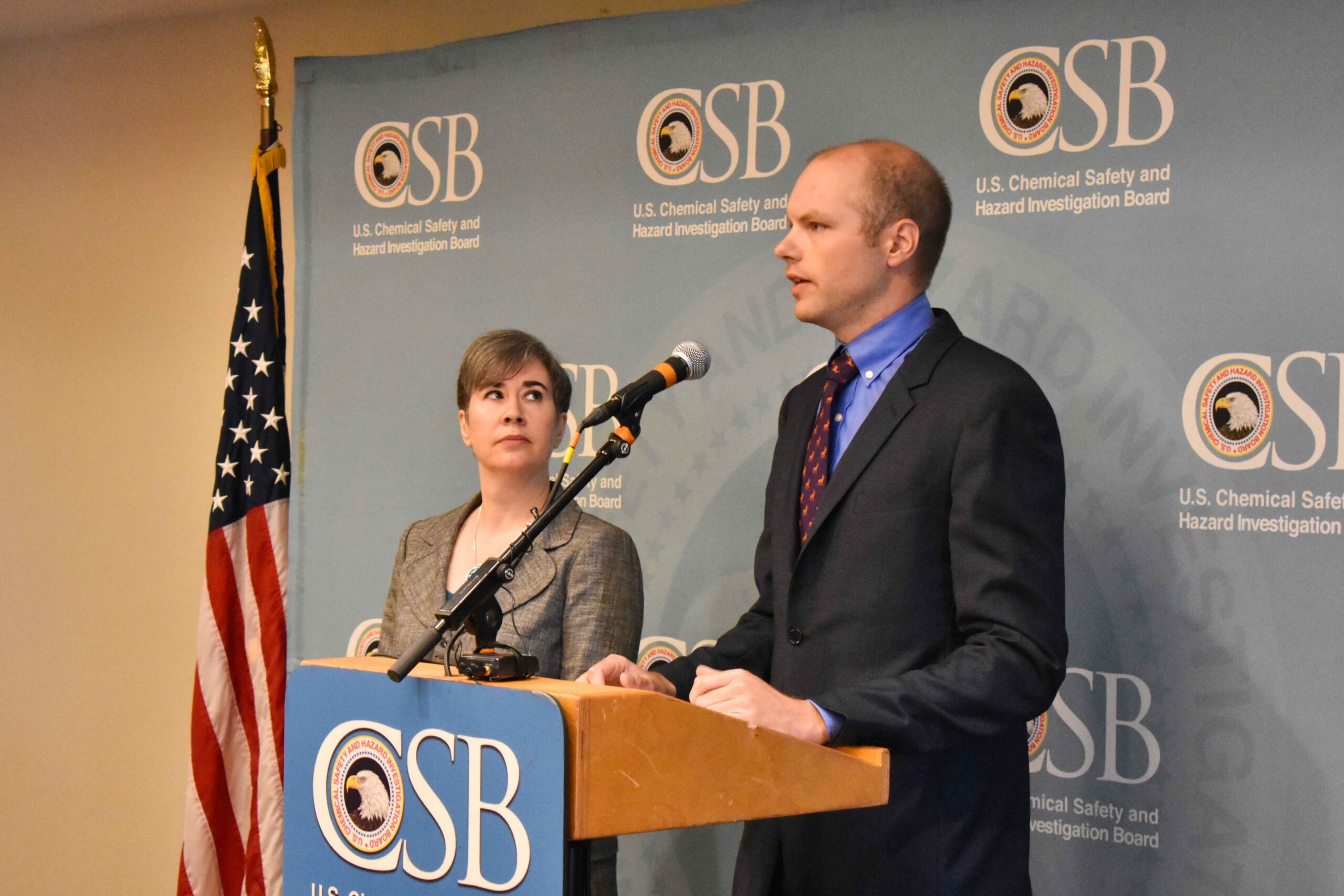
“Refineries with FCC units, including especially those with hydrofluoric acid alkylation units, should review our report thoroughly and ensure that they have the necessary safeguards in place to prevent a similar disaster from occurring at their facilities during shutdowns and startups. This accident could have been avoided,” CSB Chairperson Steve Owens said in a statement.
Because the Superior refinery — now owned by Canadian oil company Cenovus Energy — used hydrofluoric acid, the explosion prompted an evacuation of more than 2,500 residents in the city of 27,000 over fears of a release. The highly toxic chemical can cause severe burns and lung damage that can prove fatal at high levels, but the company has said a tank holding hydrofluoric acid never spilled. However, debris punctured a tank further away from the explosion than the acid unit. A tank containing hot asphalt spilled 17,000 barrels into the refinery. The product eventually caught fire and caused a black smoke plume that released 39,000 pounds of flammable hydrocarbon vapor into the air.
The explosion injured 36 refinery and contract workers and caused roughly $550 million in damage to the plant. Now, the Chemical Safety Board is issuing 16 safety recommendations for the refinery, federal agencies, and industry.
What did the Chemical Safety Board find?
The CSB pinpointed six safety issues that included problems related to the refinery’s “transient” state when operations aren’t running normally, such as shutting down for maintenance. That included a lack of safeguards to prevent the flow of air into equipment at the time of the incident.
The agency said refinery workers didn’t adequately understand how to shut down operations. The refinery also failed to maintain adequate operating procedures, worker training and safety information related to the fluid catalytic cracking unit.
Refinery workers also had no knowledge of a similar incident that had occurred at a refinery in Torrance, California, that could have helped prevent the explosion. The agency had released safety recommendations on slide valves less than a year before the 2018 incident.
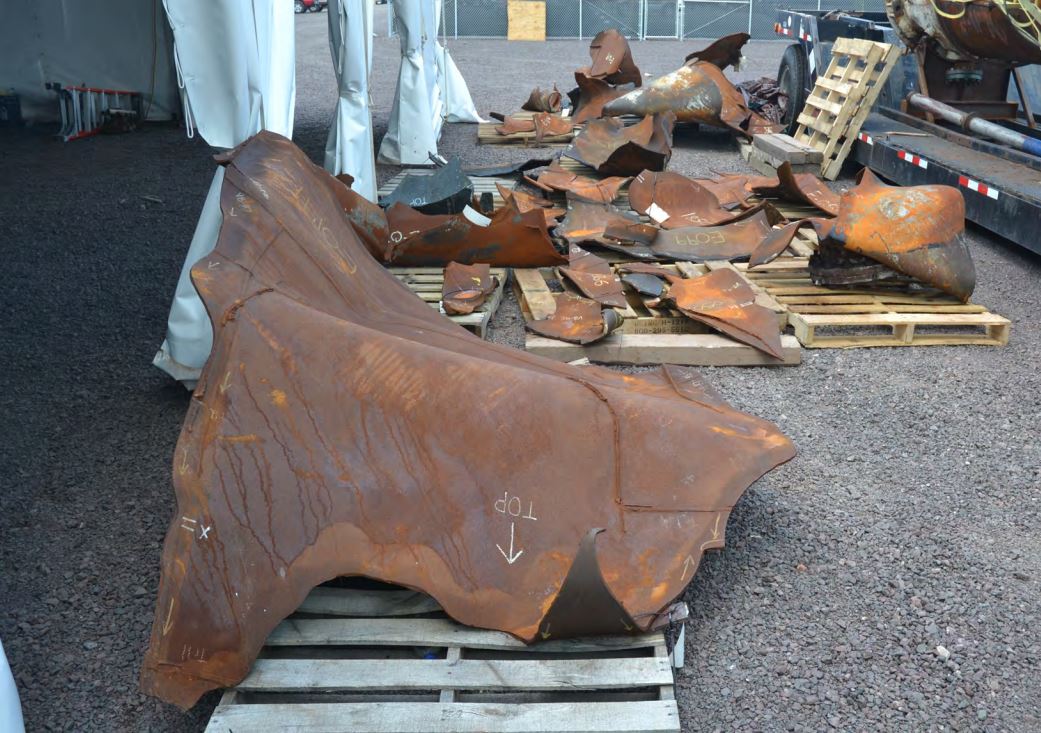
The agency also cited metal in equipment that exploded had failed due to brittle fracture or “shattering like breaking glass.” The blast sent more than 100 metal fragments up to 1,200 feet away. The equipment, known as the primary and sponge absorbers, was built from older grade steels. The standards for those metals had been withdrawn in 1967.
Finally, the board found the refinery didn’t prevent asphalt from catching fire due the size of the spill and because they were fighting other fires, and treating worker injuries.
WPR previously reported on issues observed by the U.S. Occupational Health and Safety Administration related to the refinery’s operating procedures, worker training and use of older grade steels.
What is the CSB recommending?
The Chemical Safety Board has issued 16 safety recommendations for the refinery, Cenovus Energy, American Petroleum Institute, OSHA, and the U.S. Environmental Protection Agency.
For the refinery, they include creating safeguards to prevent explosions in the fluid catalytic cracking unit during shutdowns or startups, which will be important as the refinery is set to start up operations in the first few months of this year. The board also recommends the refinery develop a program to ensure mechanical integrity of slide valves in order for them to work properly and address erosion. The agency also suggests creating a training program for its FCC unit based on industry guidance.
“We have incorporated all of the recommendations the Chemical Safety Board directed to the Superior Refinery into our rebuild, and they will be in place when it restarts,” Cenovus spokesperson Reg Curren said in a statement.
Cenovus said they’ve improved safety processes and upgraded equipment that aligns with the board’s recommendations as part of a $1.2 billion rebuild of the refinery. Those measures include new state-of-the-art slide valves and advanced instrumentation to monitor operations in the fluid catalytic cracking unit. The changes also include a new control system that will enhance safety during shutdowns, new expert training materials, and simulators to cover a range of operating conditions.
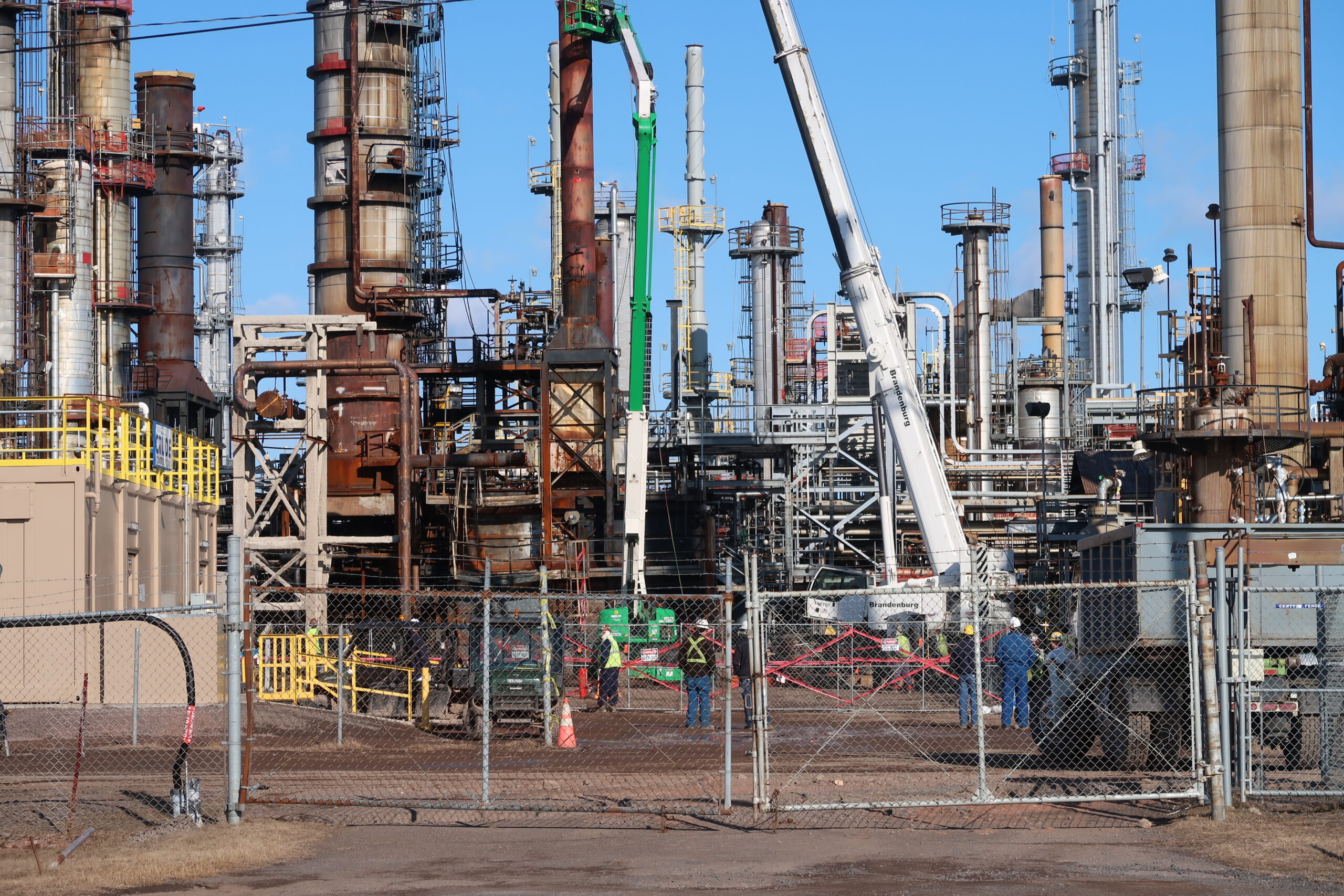
“We will continue to work with the CSB as we progress the implementation of its recommendations directed to Cenovus’s U.S. operations,” Curren said.
Along with safety recommendations for the refinery, the CSB recommends increased federal safety inspections of similar facilities. They are proposing the EPA develop a program that prioritizes inspections of fluid catalytic cracking units nationwide that use hydrofluoric acid in its refining process like the Superior refinery. That program would ensure that such units have safeguards in place during startups and shutdowns, including those that were lacking during the 2018 incident. The board said that’s in addition to similar recommendations made earlier last fall regarding the 2019 fire and explosions at a Philadelphia refinery. That report advised EPA to require refineries to evaluate safer technology.
Superior Mayor Jim Paine said Cenovus refinery’s use of hydrofluoric acid or hydrogen fluoride is a major concern. He and Duluth Mayor Emily Larson had called on the refinery to discontinue its use. Paine “enthusiastically” supports the board’s recommendations for the EPA.
“I would have preferred (company officials) to make an adaptation to the refinery so that they didn’t use hydrogen fluoride. And instead, they opted to continue using it with increased safety mechanisms. Now, obviously, that’s a concern. I wish it wasn’t there at all,” Paine said.
Paine said he’s somewhat relieved the refinery is adding more safety mechanisms that include more water cannons and a system to rapidly transfer acid to another holding tank in the event of a release.
In a statement, the EPA said it’s reviewing the CSB’s recommendations from the 2018 refinery explosion in Superior and the 2019 incident in Philadelphia.
“Accident prevention is a top priority for the agency. In August 2022, EPA published the Safer Communities by Chemical Accident Prevention (SCCAP) proposed rule, which proposes revisions to the Risk Management Program (RMP) to further protect vulnerable communities from chemical accidents,” the EPA said. “The proposed rule would strengthen the existing program and includes new safeguards that have not been addressed in prior RMP rules, such as requiring safer technologies and alternatives analysis for certain facilities with high accident rates.”
Meanwhile, the CSB also recommends OSHA create guidance documents for reviewing safety hazards during times where facilities aren’t operating under normal conditions. And the board suggests the American Petroleum Institute incorporate lessons learned from the explosion, update recommended practices for refinery valves, and develop a publication on safe operation of FCC units at refineries.
“Hydrofluoric process units are a proven technology and serve a critical role in meeting market demand for high octane fuels,” API Spokesperson Scott Lauermann said in a statement. “We are reviewing the CSB’s recommendation and look forward to continuing to work collaboratively with the Board to ensure the safety of our nation’s refining infrastructure.”

Why did the report take so long?
The Chemical Safety Board originally said it planned to release its report in 2019. But the agency tasked with investigating chemical incidents and providing safety recommendations has been contending with a backlog of investigations and understaffing.
“During the timeframe after the incident occurred, the CSB was experiencing some significant issues with our ability to have the sufficient number of investigators to assign to each of our open investigations. We have since made some significant progress to correct that issue,” Steve Klejst, the agency’s executive director of investigations and recommendations, told WPR.
A September report from the U.S. Environmental Protection Agency’s Office of Inspector General found the board had a backlog of 17 investigations as of June 30 — nearly double its backlog four years ago. The average time to complete an investigation is almost two years, but Superior residents waited twice as long for answers on the Husky refinery.
“Obviously, this would have been more helpful earlier,” Paine said. “The refinery has put a lot of work in, and the changes that they’ve made to get ready for the restart, are largely in the rearview mirror. It’s not to say that they can’t implement more safety protocols and equipment and procedures, I hope that they will.”
Klejst said he believes Cenovus will be able to incorporate all the agency’s recommendations.
“We don’t believe that the delay necessarily prevented Cenovus from utilizing the appropriate practices, the appropriate safeguards in order to bring their operation to a level that will allow for its safe and efficient operation,” Klejst said.
The Chemical Safety Board said 87 percent of the agency’s 907 safety recommendations have been closed, meaning entities have put them into practice. If the agency’s recommendations are followed, staff said future incidents like the explosion in Superior can be prevented.
Wisconsin Public Radio, © Copyright 2025, Board of Regents of the University of Wisconsin System and Wisconsin Educational Communications Board.

